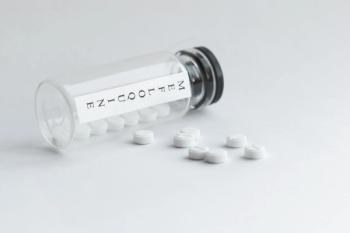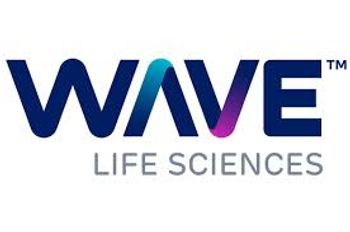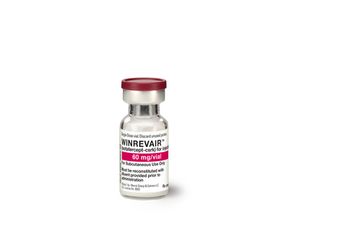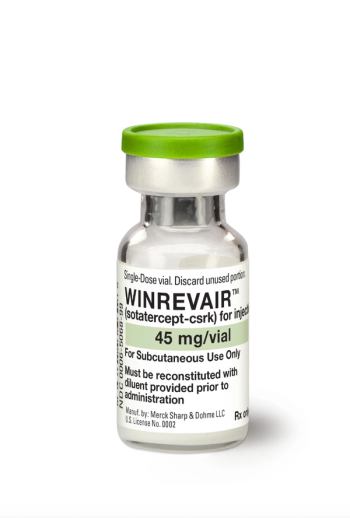
A new report suggests combining the antimalarial drug with aminoglycosides could enhance the latter’s efficacy, which could also have important safety implications.

A new report suggests combining the antimalarial drug with aminoglycosides could enhance the latter’s efficacy, which could also have important safety implications.

A trial found magnetic resonance imaging correlated with physical function tests in patients with Duchenne muscular dystrophy.

A new meta-analysis finds corticosteroids have long-term benefits, and a separate study suggests benefits hold regardless of dosing schedule.

A new article argues dystrophin immunogenicity is an under-examined issue in the treatment of Duchenne muscular dystrophy.

Participants in the FORWARD-53 trial had clinically significant improvements in time-to-rise, among other metrics.

The patient died of acute liver failure; the maker of the gene therapy noted that the patient also had a recent cytomegalovirus infection.

Data show people with pulmonary arterial hypertension tend to stay in the hospital longer and have higher medical bills.

The drug’s developer, Cereno Scientific, believes its oral therapy could have a major impact on the pulmonary arterial hypertension market.

Few question the benefits of adopting a universal healthcare data exchange standard but achieving that goal will prove to be difficult.

New research could pave the way toward a new method of pulmonary arterial hypertension diagnosis and monitoring.

Women are more likely to have pulmonary arterial hypertension, but men tend to have worse outcomes and worse treatment responses.

The technology to leverage healthcare data exists. The problem, according to Highlander Health, is outdated structures and silos.

Gossamer also reported encouraging preclinical data related to the combination of seralutinib and Winrevair.

The move means the pulmonary arterial hypertension drug is now available in the United States, Europe, and the United Kingdom.

A pooled analysis of two prior trials suggests patients with a variety of cardiac index scores saw improvement when Winrevair was added to background therapy.

All participants will now have access to the drug through an open-label extension study.

Vitamin D receptor has antiproliferative effects in pulmonary arterial hypertension, but receptor expression is downregulated in the pulmonary artery smooth muscle cells of patients.

New data suggests clinicians may be slower to recognize sepsis in people with pulmonary arterial hypertension.

Patients with pulmonary arterial hypertension often experienced delays in obtaining a correct diagnosis.

Most patients did not receive combination therapy for pulmonary arterial hypertension (PAH) even when guidelines recommended it.

UpScriptHealth and other telehealth providers are teaming up with drug and device companies to provide “frictionless” access to their products. Will they lead to overprescribing and compromise the physician-patient relationship?

But there are some concerns: high costs, extended hospitalizations and secondary cancers.

New real-world data suggest that physicians are cautious about prescribing the prostacyclin-receptor agonist Uptravi (selexipag) to pulmonary arterial hypertension (PAH) patients with mental health conditions when evidence suggests that it is best to take a proactive approach to treating PAH.

The results come from a phase IIa safety and tolerability study. The drug’s developers say they are working with regulatory authorities in hopes of launching a pivotal trial.

Artificial intelligence is quickly becoming a valuable tool in the U.S. healthcare industry. Experts say a thoughtful approach can head off ethical problems and optimize efficiency.

Preclinical data had suggested reducing serotonin might improve symptoms of pulmonary arterial hypertension, but new phase 2b data suggest the opposite.

New anecdotal evidence suggests some chemoimmunotherapy treatments may improve pulmonary arterial hypertension symptoms, but the overall evidence remains murky.

Investigators say more research is warranted to optimize management of patients with pulmonary arterial hypertension (PAH) who become pregnant.

Telehealth has become a permanent part of U.S. healthcare delivery, and states are taking steps to regulate it

Individualized digital twins offer the prospect of better predicting individual patients’ disease progression and response to therapy.